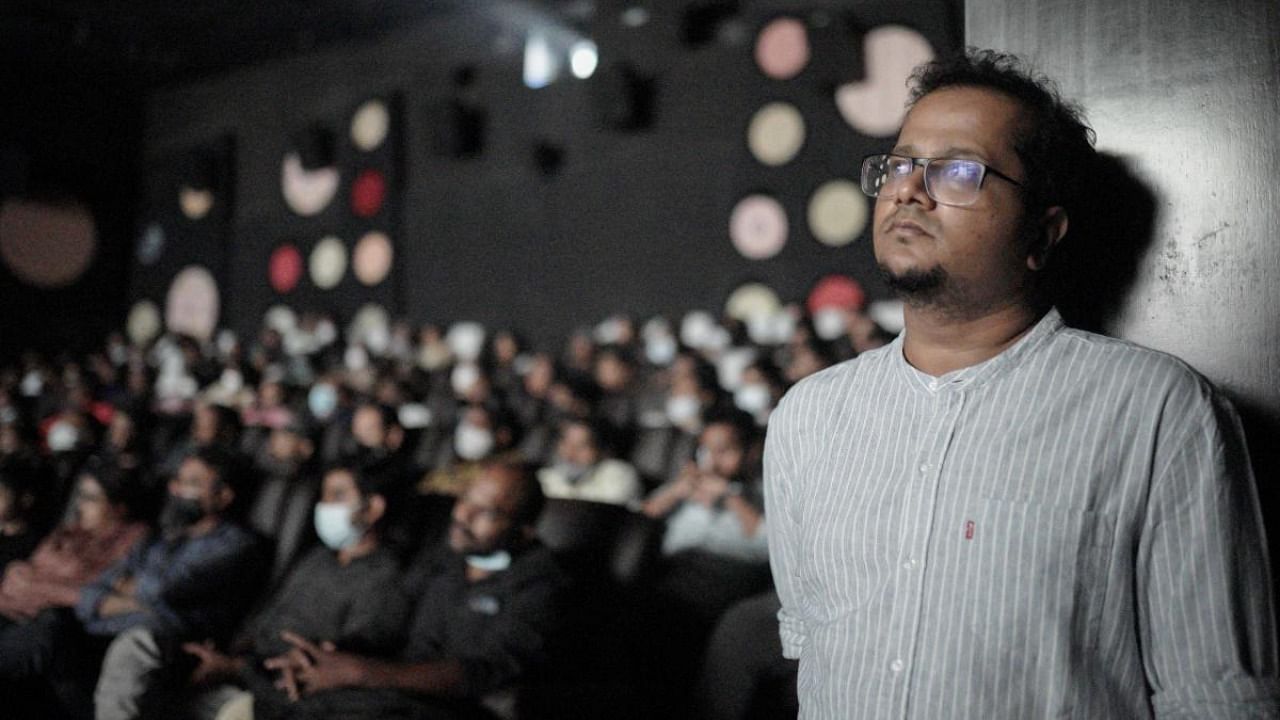
Gautham Ramchandran’s ‘Gargi’, starring Sai Pallavi, continues to get rave responses ever since it released in theatres in July. The Tamil film is a gripping tale of a daughter’s fight for justice after her father gets arrested in a child abuse case.
Inspired by several real incidents, the film has engaging portions of courtroom drama. It was hailed for its near-perfect screenplay and a story that breaks many popular perceptions.
Gautham has bounced back after his forgettable debut ‘Richie’, a remake of Rakshit Shetty’s Kannada classic ‘Ulidavaru Kandante’ (2014). The director spoke to Showtime on ‘Gargi’ and its themes. Excerpts:
Why is the film named Gargi?
Gargi is actually a fictional character. In the Vedic era, there was a time when only male scholars had the opportunity to debate. In that period, there were few women scholars who were given the privilege to talk. Among them were Gargi and Maitri. So in our film, Sai Pallavi’s character’s name is Gargi and the victim’s name is Maitri as the spirit of those two women, who are never wrong, was given to these characters.
Not just ‘Gargi’, many other recent commercial films have been critical of the media...
The number of every department in media has amplified. From journalists to critics to filmmakers to analytics, a lot of us are in these fields. This dangerously means that you arrive at conclusions very soon as well. We have always shown this field in an outright negative manner. I definitely didn’t want to adopt that template. But I wanted to exhibit reality also. For instance, we were very quick to conclude on ‘Drone’ Prathap. It immediately became a competition on who becomes the first to break the news between the media channels. We ignored to think scientifically.
Some felt the rape scene was shown in an explicit manner...
In the history of rape scenes, mine is one of the most subtle ones. I show the hand, blood and feet. I could have avoided it but at one point, you need to feel the nail going into the head. Normal visual grammar will also involve showing the face of the people involved. I was focused more on the mind play. I was keen on knowing what happens in the mind of the audience. The disturbance was intentional as I didn’t want people to forget the nature of the incident. Though it’s about the father-daughter relationship, we cannot be silent on the ghastly nature of the incident.
There were arguments that the film’s climax strengthens the belief that it’s always the working class who people commit such crimes...
I have reversed the father-daughter relationship that’s shown decades together in the cinema. So when I was writing, I didn’t sit to please one section of the audience. And for that matter, there is no class, which if I had shown in the film, people would have felt okay. People of all groups have committed crimes of all nature.
The film has solid drama but it also keeps us on the edge of the seats...
We didn’t stick to the grammatical beat points of the thriller like an intentional mislead and then take the plot in a different route. But if people call it a thriller, I would like Gargi to be known as an emotional thriller. In ‘Drishyam’, the father was trying to safeguard his family. That’s what my Gargi was trying to do as well.
You begin the film thanking Shankar Nag and Balu Mahendra...
I love Shankar Nag’s ‘Minchina Ota’ (1981). I still remember the way it started and the anti-climax of it. I remember it being not conventional but still drawn to it. And Shankar Nag was one of the first to add social commentary in mainstream Kannada cinema. All filmmakers have many intentions to convey through their films. But if you paint that subtly, then it has an impact on the audience. Shankar Nag was adept at it.
Balu Mahendra’s ‘Moondram Pirai’ (1982), loosely adapted from ‘Psycho’ (1960), is a film close to me. Watching it, you have this feeling that the whole thing was poetry. So in ‘Gargi’, everything looks like it is stitched out of the same frame. Our camera language is different. The entire film, visually, had a seamless flow, l didn’t want jerky frames, zoom-ins and cut-ins. Even if we had some match cuts, I made sure Govind Vasantha’s music syncs with them.
I was inspired by his personal life as well. He fell in love with cinema after seeing the train falling scene from the 'Bridge On The River Kwai' (1957). Thats where he thought he wanted to be a filmmaker and 'Bridge On The River Kwai' was the first film my father showed me. He is also one person I met initially when I moved to Chennai.
Sai Pallavi exudes so much sincerity in her performance. How do you describe her acting?
She spoils you for other actors with respect to what she brings to the game. Her dedication level, and her effort to bring things right, everything just makes life so much easier for a director. She owns up to the role and the film. We were a small production house and she is a big star in Andhra Pradesh. Yet, she knew what was best for the film.
Bengaluru boy
I grew up in Bengaluru. In 2011, I came to Chennai with my colleague. I learned that cinematographer Rajiv Menon had started a filmmaking program in his institute. I was one of the firsts to sign up for the course. I haven’t looked back since then and language was never a barrier.